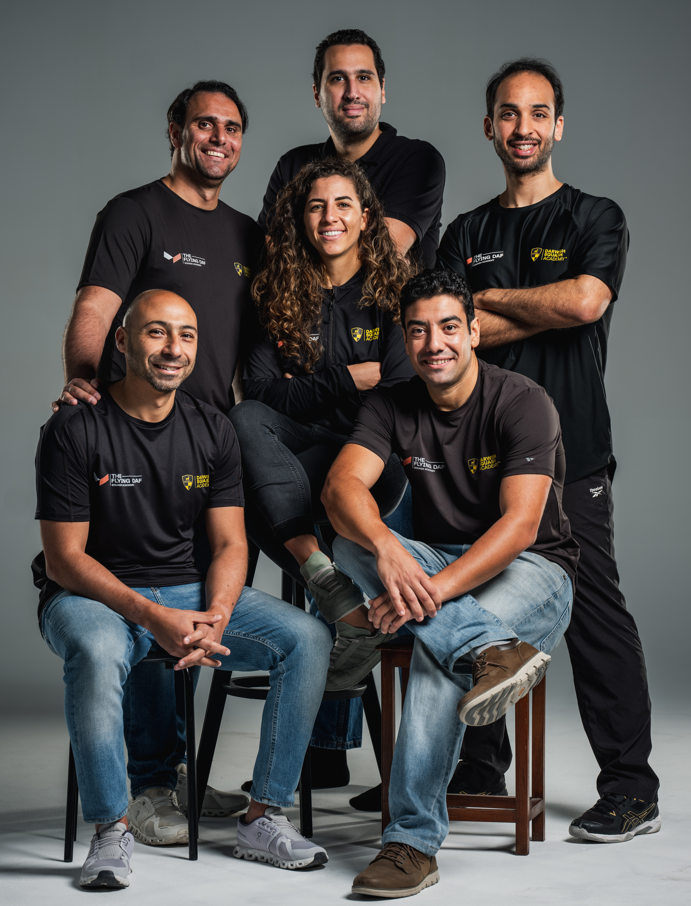The Quiet Revolution: How Kanzy El Defrawy is Reinventing Squash in the UAE
- Markus Gaebel

- Sep 12, 2025
- 4 min read
From injury-forced retirement to architect of an entire squash ecosystem in Dubai

When Kanzy El Defrawy landed in Dubai from Egypt with a one-way ticket, her only wish was to escape the pain of an unfinished dream. An injury had cut short a career she once imagined would take her to world No. 1, leaving her with questions she didn’t want to hear and reminders she couldn’t bear to face. She wanted anonymity, a place where no one asked why she wasn’t playing anymore. Yet in the towers of Dubai, she found herself surrounded by squash courts — in hotels, residential complexes, and fitness clubs. Squash was everywhere, and at the same time invisible. It felt like the sport was haunting her, whispering from behind the glass. That paradox — running from squash only to find it hiding in plain sight — became the spark for one of the UAE’s most surprising sports stories.
A Country Full of Courts — but No System
When the world slowed during the pandemic, Kanzy finally had the quiet to notice what Dubai was really telling her. In her own residential tower there was a gleaming court; then another in the hotel lobby; another tucked behind the cardio machines at a gym. Squash glittered behind glass all over the city—yet there was no federation, no national team, no junior ladder, no calendar. Even the PSA spotlight had gone dark after 2017. What looked like abundance was, in truth, a scattering of isolated courts with no common heartbeat.
The paradox gnawed at her. Dubai’s mosaic of 200+ nationalities includes huge communities from squash heartlands—India, Pakistan, the UK, Egypt—people who knew the sport intimately. And still, no pathways bound the interest to the infrastructure. Parents didn’t know where to start. Kids had nowhere to aim. Coaches had nowhere to gather. Standing in that gap—and knowing she was the only professionally ranked player in the country—she felt less like a newcomer and more like a custodian. If there was going to be a culture, someone had to build it.
So she began sketching the missing pieces: a federation to sanction play, a structured academy to turn curiosity into commitment, and a calendar that would make progress visible. It wasn’t a grand plan at first—just a refusal to accept that a city full of courts should be a city without a squash community. That is where the real story starts.
The Invisible Wall: Fragmented Infrastructure
What looks like abundance in the UAE—courts tucked into residences, hotels, and gyms—becomes a bottleneck the moment you try to build culture. With sites capped at one or two courts, squads can’t train side-by-side, match-play volume is tiny, and junior ladders or league nights collapse under scheduling friction. Coaches are spread thin across a dozen micro-venues; every clinic, trial, or PSA event turns into a logistics puzzle with no space for spectators, media, or sponsors. Even Kanzy’s biggest tournament had to cap the crowd at 40—great for a private lesson, deadly for momentum.
Parents feel that fragmentation too: inconsistent routines, long cross-town hops, and fewer chances to see a packed gallery that tells their kids, “this is worth the grind.” In short, the UAE’s ~1,500 courts are everywhere—and nowhere at home. Which is exactly why a new squash hub matters.
The First Step: Against the Grain
“I started from below scratch”
With the determination of a world-class athlete, Kanzy launched the UAE’s first squash academy—at a time when the bureaucracy didn’t even recognize the category squash academy. She pushed to have The Flying Daf Academy created, then chose the five-star Jumeirah Mina A’Salam as her first base. After a year of lobbying she was given a six-month trial to prove the sport could stand on its own. Credentials (world No. 20, U.S. No. 1) got attention but not traction, so she primed demand the hard way: free intro sessions and 10–12 hour coaching days, seven days a week.
From Fun to Structure
“Dubai changes every day”
That grind revealed the real unlock: not promotion, but a system. In a city where many residents can play for free in their buildings, elite résumés don’t convert on their own. She switched to monthly tuition instead of drop-ins, enforced attendance, and educated parents about commitment and progression. She mirrored Egyptian club pathways and added a practical carrot: squash, taken seriously, can open doors to U.S. universities—including the Ivy League. The Flying Daf Academy has since expanded to 12 locations, introduced college-style play at NYU Abu Dhabi (Abu Dhabi campus of New York University), and broadened access with a Special Olympics (“people of determination”) squad—turning casual curiosity into a ladder with visible rungs.

The Big Leap: A Home for Squash in the UAE
“We need a home”
That home is taking shape inside the AllSports Arena in Al Quoz 1—a new, multi-sport complex developed by Galadari Ventures with Duplays as operator. The project is under construction and slated to open in December 2025, positioned “just off Sheikh Zayed Road” as a comprehensive indoor sport & social destination.

The site spans a 25,600 m² plot with 16,000 m² built-up area and 200 parking spaces, organized into four purpose zones: SportHouse (indoor fields/courts), ClubHouse (F&B, performance gym, fitness studios, recovery, physio, coworking, nursery), SwimHouse (25 m, 8-lane covered lap pool), and ClimbHouse (climbing & bouldering).
Within SportHouse’s RacquetHouse, plans and visuals indicate a seven-court squash cluster—ideal for leagues and events—alongside padel. A soft opening is slated for December 2025, with full operations ramping up in the first quarter of 2026.
For squash in the UAE, it’s more than a venue—it’s the first true home.




Comments